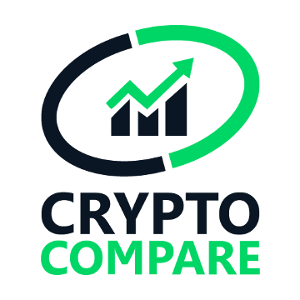BitcoinWorld Ethereum’s Astounding Ascent: Can ETH Truly Become the Ultimate Long-Term Value Asset? The cryptocurrency world is buzzing with a bold prediction: could Ethereum truly surpass Bitcoin as the leading Ethereum long-term value asset? A recent VanEck report certainly thinks so, sparking an important debate around the future of ETH vs Bitcoin in the digital asset landscape. This isn’t just about price; it’s about fundamental utility and economic design that could reshape the crypto investment landscape. Why is Ethereum’s Long-Term Value Gaining Astounding Traction? VanEck’s July report provides compelling reasons why Ethereum’s long-term value proposition is strengthening. One key factor highlighted is Ethereum’s significantly lower inflation rate, sitting at a mere 0.2% compared to Bitcoin’s approximately 3%. This stark difference contributes to Ethereum’s appeal as a sustainable crypto store of value . Furthermore, the introduction of Ethereum staking after the Merge has transformed its economic model. Staking offers participants a yield, effectively turning ETH into a productive asset. This mechanism, combined with its deflationary tendencies through transaction fee burning, gives Ethereum a unique edge. It makes ETH more attractive for those seeking both capital appreciation and potential income. The Evolving Battle for Supremacy: ETH vs Bitcoin For years, Bitcoin has held the crown as “digital gold,” primarily valued for its scarcity and decentralized nature. However, the report suggests that Ethereum’s flexible utility offers a different, potentially superior, path for long-term appeal. While Bitcoin’s use case remains largely static as a store of value, Ethereum powers a vast ecosystem. Think about it: Ethereum is the backbone for decentralized finance (DeFi), non-fungible tokens (NFTs), and countless decentralized applications (dApps). This inherent utility and programmability make Ethereum a dynamic asset, constantly evolving and expanding its potential applications. This contrasts sharply with Bitcoin’s more singular focus, leading many to reconsider the dynamics of ETH vs Bitcoin for future treasury holdings. Unpacking Robust Institutional Ethereum Adoption and Staking Benefits A significant indicator of growing confidence in Ethereum’s future is the increasing rate of Institutional Ethereum adoption. The VanEck report reveals that institutional ETH holdings have now reached an impressive 8.2 million ETH, representing 6.8% of the total supply. This isn’t just retail interest; major players are accumulating. For example, Bitmine Immersion leads the pack with a substantial 625,000 ETH in their portfolio. What drives this institutional interest? Beyond its utility, the attractive yield from Ethereum staking plays a crucial role. Institutions can earn passive income on their holdings, adding another layer of value to their investment strategy. This makes Ethereum not just a speculative asset, but one that can generate returns. What Does This Mean for the Future of Crypto Value? The insights from VanEck paint a compelling picture. Ethereum’s combination of lower inflation, a productive Ethereum staking yield, expansive utility, and growing Institutional Ethereum adoption positions it as a formidable contender for the ultimate crypto store of value . While Bitcoin’s legacy is undeniable, Ethereum’s dynamic nature and evolving economic model present a strong case for its potential to eventually surpass BTC in Ethereum long-term value and treasury appeal. This shift in perspective suggests that the market may increasingly favor assets that offer both scarcity and utility. As the digital economy matures, assets like Ethereum, with their multifaceted use cases, could redefine what it means to be a foundational long-term investment in the crypto space. Frequently Asked Questions (FAQs) Q1: What is VanEck’s main prediction about Ethereum? A1: VanEck’s report suggests that Ethereum has the potential to surpass Bitcoin as a long-term value asset, primarily due to its lower inflation, staking yield, and flexible utility. Q2: How does Ethereum’s inflation rate compare to Bitcoin’s? A2: Ethereum’s inflation rate is significantly lower at approximately 0.2%, compared to Bitcoin’s around 3%, making ETH a more deflationary asset over time. Q3: What role does Ethereum staking play in its long-term value? A3: Ethereum staking allows holders to earn a yield on their ETH, transforming it into a productive asset. This passive income potential, combined with deflationary mechanics, enhances its appeal as a long-term investment. Q4: Why are institutions increasingly interested in Ethereum? A4: Institutions are attracted to Ethereum due to its growing utility across DeFi and NFTs, its deflationary nature, and the attractive yields offered through Institutional Ethereum staking programs, making it a compelling treasury asset. Q5: What are the key differences in utility between ETH and Bitcoin? A5: Bitcoin’s primary utility is as a decentralized store of value (“digital gold”). Ethereum, on the other hand, offers broad utility as a platform for smart contracts, decentralized applications (dApps), DeFi, and NFTs, making it a dynamic and programmable asset. Share Your Insights! Did this article shed new light on Ethereum’s potential? We encourage you to share this analysis with your network on social media! Your insights and discussions help us explore the evolving crypto landscape together. To learn more about the latest Ethereum trends, explore our article on key developments shaping Ethereum institutional adoption. This post Ethereum’s Astounding Ascent: Can ETH Truly Become the Ultimate Long-Term Value Asset? first appeared on BitcoinWorld and is written by Editorial Team
 Market Analysis Report (29 Sep 2025)
Market Analysis Report (29 Sep 2025) XAN is available for trading!
XAN is available for trading!











